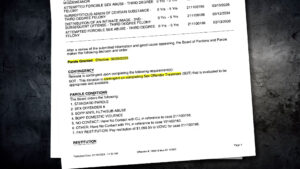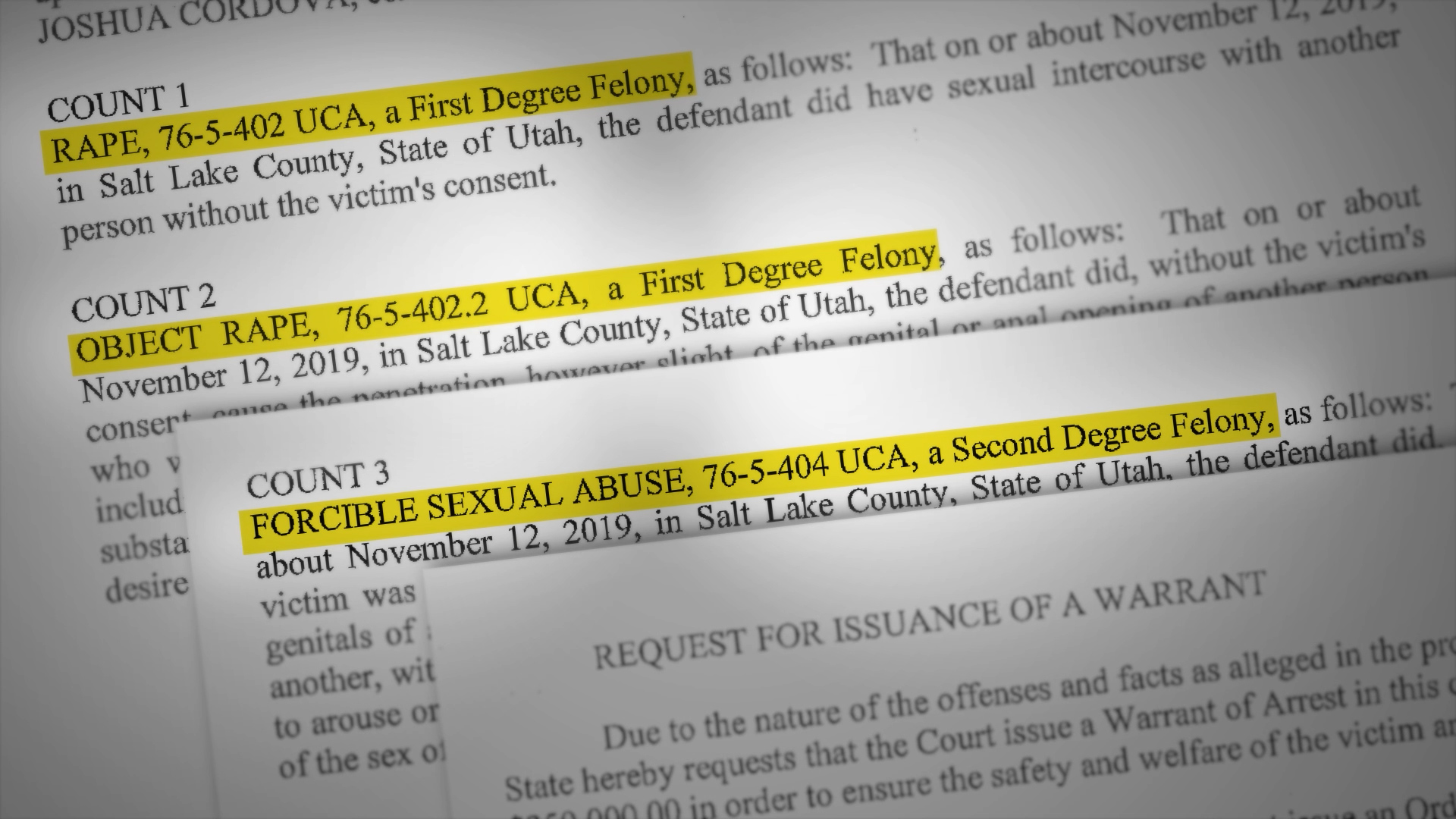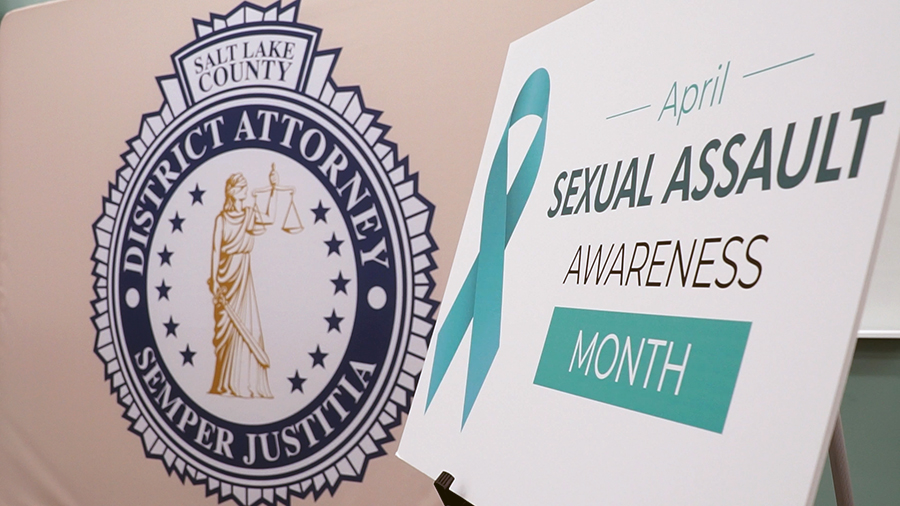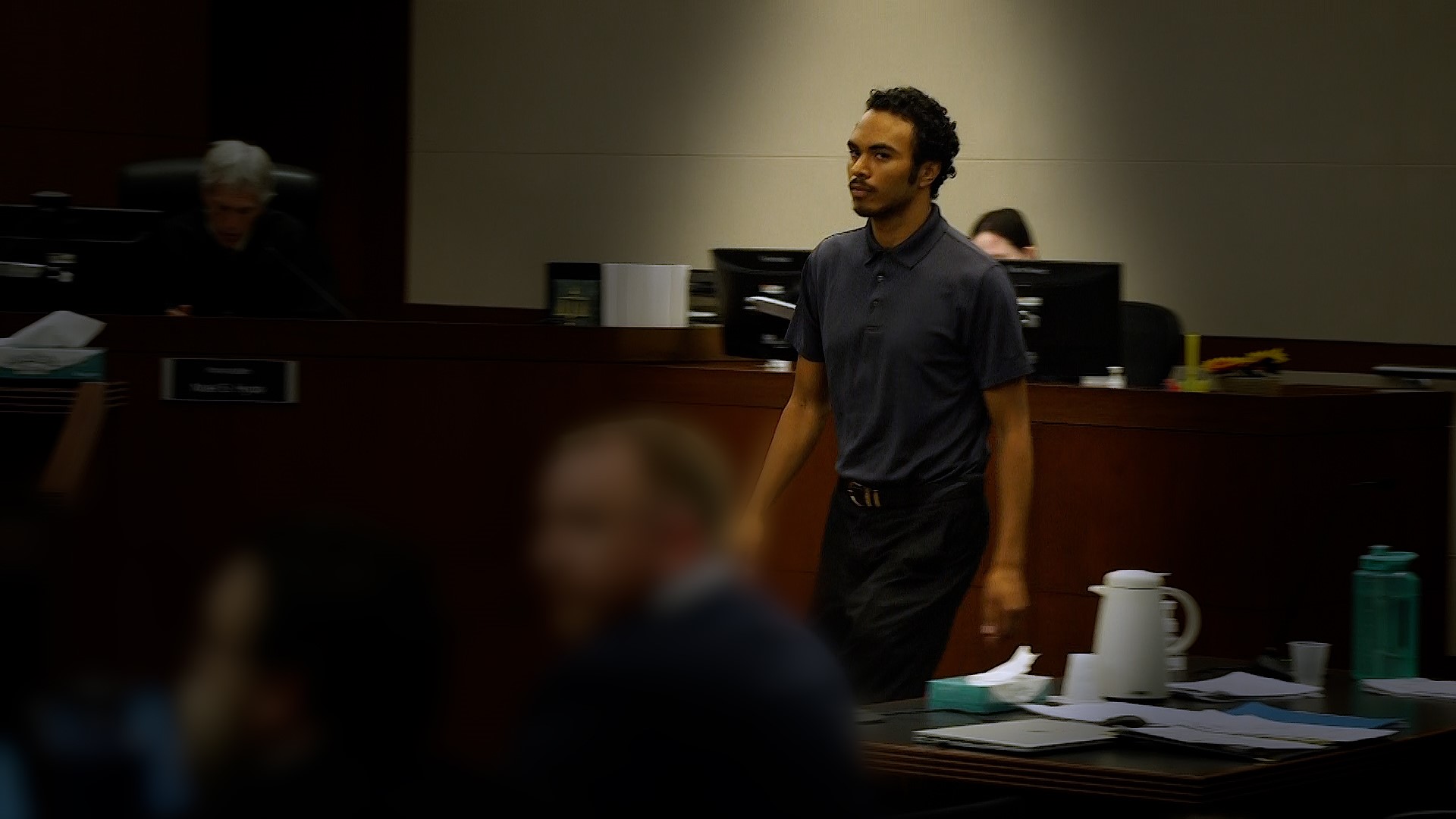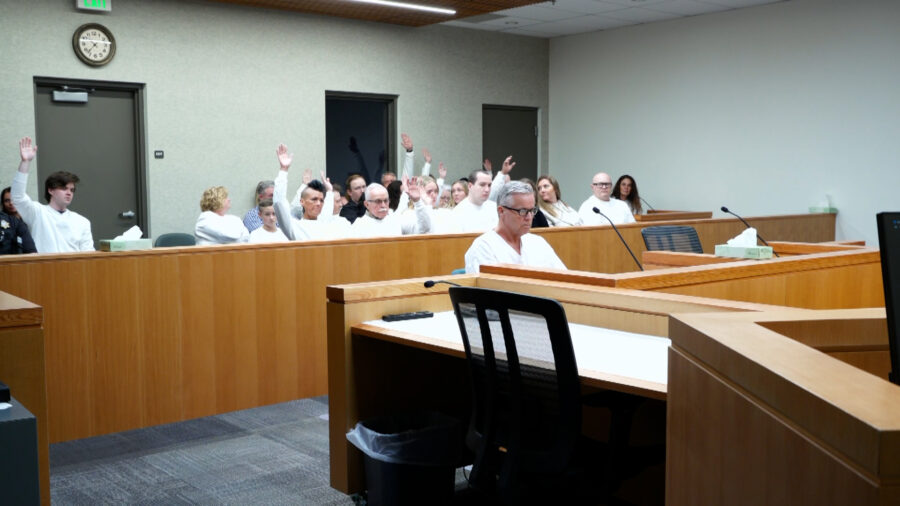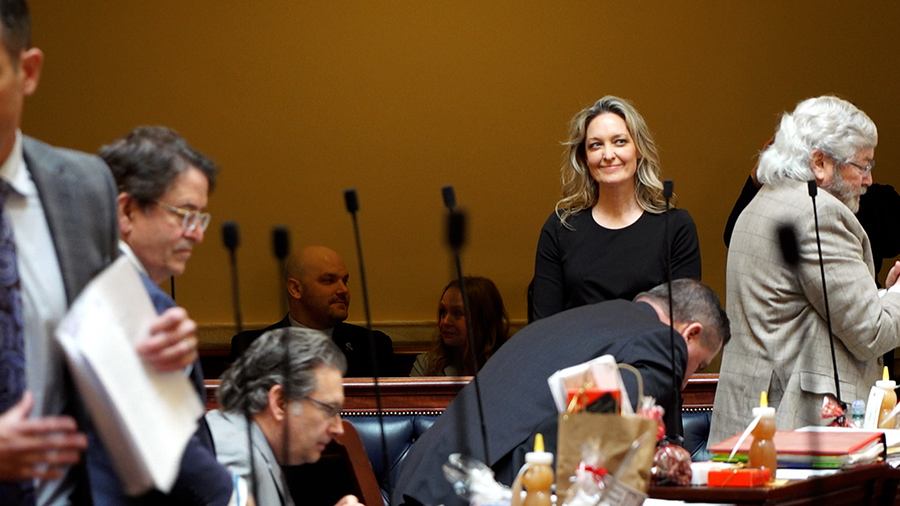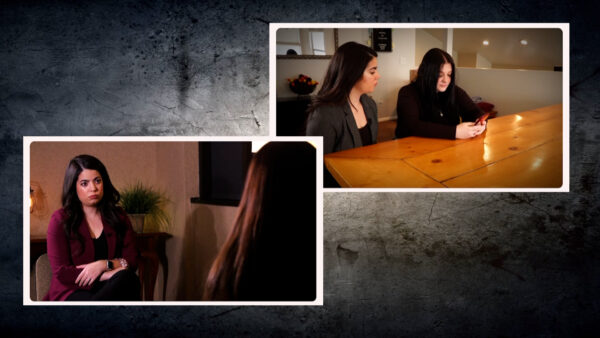‘This is a mistake’: Utah woman shocked to learn perpetrator granted parole just months after sentencing
Jan 25, 2024, 10:22 PM | Updated: Jan 26, 2024, 11:17 am
SALT LAKE CITY – A Utah woman said her sense of safety and justice was shattered by a single text message this month alerting her that the man she’d fought for years to put behind bars had been granted parole.
“It makes me cry,” Cami Johnson told the KSL Investigators. “Because I have fought, and I have fought, and I have fought when there was no hope.”
The text sent from VINE, Utah’s automated victim information service, at 6:42 p.m. on Friday, Jan. 12, informed Johnson that “parole was granted” for her ex-husband, Byron Thad Haderlie, and scheduled to begin in February 2025.
“This is a mistake, this is a mistake, this has to be a mistake,” she recalled thinking. “I have not gone through all of this for a mistake.”
Johnson was not aware Haderlie was up for parole, just three months after he was sentenced.
The Utah Board of Pardons and Parole has acknowledged it needs to improve how it communicates with victims of crime and has promised to implement a victim-centered notification system that is in progress but not yet up and running.
Case background
Johnson reported to police in Cache County in 2017 that Haderlie drugged and sexually assaulted her. Despite Johnson reporting to police quickly and undergoing a forensic exam at the hospital, North Park police inactivated their investigation into Haderlie multiple times.
Detectives didn’t attempt to contact Haderlie to ask him about Johnson’s report until more than a year later, after a 16-year-old girl reported to police in a different county that Haderlie drugged and attempted to sexually assault her too.

Byron ‘Thad’ Haderlie appears in court in Cache County for a sentencing in October 2023. (Josh Szymanik, KSL TV)
Haderlie was sentenced in the case involving the teen in 2019. Then, in October last year, he was sentenced to zero to 15 years for lesser charges he pleaded guilty to in the case involving Johnson.
“The whole system has failed me from the beginning to today,” said Johnson.
Parole decision
Haderlie’s parole hearing happened on Jan. 2. The board could have kept him incarcerated until March 2039, but granted his release early next year, contingent on his successful completion of sex offense treatment.
According to Jennifer Yim, administrative director of the Utah Board of Pardons and Parole, the state’s sentencing guidelines recommended a release date in July of this year. The board’s decision would keep him incarcerated seven months longer than that recommendation.
“It made me feel like everything we did, you know the last seven years and getting this sentence, meant absolutely nothing,” said Johnson.
During the parole hearing that lasted about 15 minutes, Haderlie said he’s changed during the time he’s been incarcerated.
“My perspective has holistically changed through these last five years, approximately five years of incarceration,” he said. “I continue to have forward progression and would like an opportunity to be able to, to get back out into society.”
Haderlie, now 53, told the hearing officer, “I have no malice towards anyone, and those were my decisions, and that’s 100% on me.”
Unsuccessful victim notification
Johnson said she was told at Haderlie’s October sentencing that she didn’t need to worry about a parole hearing for at least four years. That information was wrong. Offenders typically have an initial parole hearing within a few months of their sentencing.
“I, if I had any word of a parole hearing, would absolutely clear everything to make sure that I’m there,” Johnson told the KSL Investigators.
Yim said the board mailed Johnson a letter notifying her of the hearing, as required by Utah law, but they had the wrong address. The letter was returned to the sender on Dec. 11, 2023.
When that happens, Yim said the board tries to find other ways to contact people before the hearing – but because victim information is protected, contact information is almost always redacted in the case records the board receives from the courts.
“I know people think, ‘Well, the DMV has my information, why don’t you?’” said Yim. “The reality is, we don’t have it, and we have to do the research to find it.”
Unfortunately, Yim said in the 13 business days between the day they got the letter back in the mail and Haderlie’s hearing, they were not able to reach Johnson.
Victim impact hearing
When asked whether what happened with Johnson’s case is a failure, Yim said, “If Cami Johnson feels like the Board of Pardons and Parole specifically failed her, then I’m sorry for that. That was not our intention. And we have done everything that we can, since we found out, to fix that problem.”
The board has scheduled a special victim impact hearing in early March to allow Johnson an opportunity to address the board.
“There’s no guarantees,” said Yim. “I can’t second guess what our board members will do. But I can tell you that they’re committed to an evidence-based, careful consideration of the facts of the case, which includes the impact on victims.”

Utah BOPP Administrative Director Jennifer Yim speaks with the KSL Investigators in January 2024. (Josh Szymanik, KSL TV)
Yim said Johnson will testify, Haderlie will be allowed to respond, and then the board will reconsider the decision.
“There are absolutely examples in the board’s history where the board, under these very same circumstances, have changed their decision based on victim impact,” said Yim. “There are also other situations where they haven’t.”
Johnson said she is exhausted after years of navigating Utah’s justice system, but she plans to attend the victim impact hearing and take the opportunity to testify against Haderlie’s release.
“I will keep doing this over and over and over and over again, to make sure that he does not do this to one more person,” she said.
A fix on the way
At least one lawmaker has expressed interest in updating the board’s victim notification responsibilities in state statute during the current legislative session. An early draft of a victims rights bill sponsored by Provo Republican Rep. Tyler Clancy called for victims of crime to be notified of all of their perpetrator’s parole hearings, but that section was removed before filing. Clancy said a different lawmaker intends to address the issue in another bill.
“It’s crazy to me that they notify you that he had a parole hearing, but we’re not notified of a parole hearing,” Johnson said, noting the automated text she received regarding the board’s decision.

A text from Utah’s automated victim notification service, VINE, alerted Johnson to the board’s decision to grant Haderlie parole. (Josh Szymanik, KSL TV)
Johnson is registered with the free VINELink notification system, which allows people to receive automated updates on the custody status of offenders in Utah prisons and jails. Yim said while it’s a common misconception that the board works with VINE, that system is not controlled by the parole board.
“We owe one another better contact, victim-centered, trauma-informed contact, and that’s what we’re working towards,” said Yim.
Under Yim’s direction, the board has been working to implement a victim-centered notification system for parole hearings and decisions. She said the project is in progress, with a vendor selection expected to happen this week. She expects it to be up and running with all the features she wants to include by the end of the year.
Until then, Yim said the best thing a victim who wants to participate in parole hearings can do is call or write to the board and let them know their preferences for when and how the board contacts them.
“It’s our commitment to honor those,” said Yim.
The Utah Board of Pardons and Parole can be reached at 801-261-6464.
This report is part of a series examining how apparent gaps at every level of Utah’s criminal justice system fail to protect Utahns.
If you have experienced sexual violence, you can access help and resources by calling Utah’s 24-hour Sexual Violence Helpline at 1-888-421-1100. You can also call the National Sexual Assault Hotline at 1-800-656-4673 for free, confidential counseling.
Have you experienced something you think just isn’t right? The KSL Investigators want to help. Submit your tip at investigates@ksl.com or 385-707-6153 so we can get working for you.


